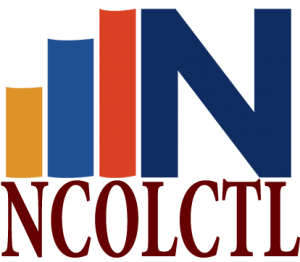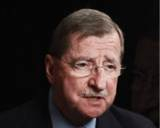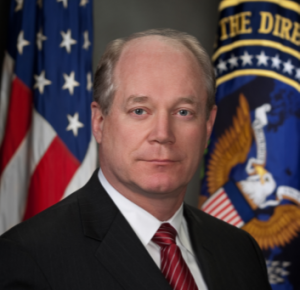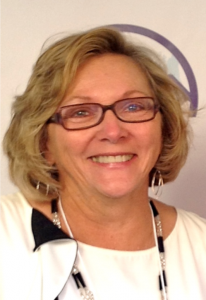 This conference aims to pursue a new pathway for advocating innovative approaches in research and practices, maximizing professional exchanges and collaboration among LCTL educators, and leveraging resources and strengths in the less commonly taught languages community. We cordially invite researchers, educators, practitioners, program developers, and administrators in the LCTL community organizations to attend the conference.
This conference aims to pursue a new pathway for advocating innovative approaches in research and practices, maximizing professional exchanges and collaboration among LCTL educators, and leveraging resources and strengths in the less commonly taught languages community. We cordially invite researchers, educators, practitioners, program developers, and administrators in the LCTL community organizations to attend the conference.
Time & Location
April 24, 2015 – April 26, 2015
Hilton Hotel Washington – Dulles, Airport VA
Click to download a copy of the program
Speakers
Dr. Richard Brecht , Co-director, American Councils Research Center
Having recently been appointed Professor Emeritus at the University of Maryland, Richard Brecht is Co-Director of American Councils Research Center, a think tank devoted to evidence for language policy in education and the work place. Having received his M.A. and Ph.D. from Harvard in Slavic Languages and Literatures, he has taught at Harvard, Cornell, Bryn Mawr, as well as at the University of Maryland. In addition to being the founding Executive Director of the Center for Advanced Study of Language (CASL), Dr. Brecht has been a principal in the founding, development, and leadership of numerous other national organizations and projects, including: Founding Chair of the Board of Trustees of the American Councils for International Education/ACTR-ACCELS; Director of the National Council of Less Commonly Taught Languages, and Director of the National Foreign Language Center. Dr. Brecht has testified in Congress before the U.S. House of Representatives Committee on Education and Labor, the U.S. House Permanent Select Committee on Intelligence, the U.S. House Armed Services Committee, and most recently before the U.S. Senate Committee on Homeland Security and Governmental Affairs. He has made hundreds of presentations and authored and edited dozens of scholarly books, textbooks, manuals, articles and reviews on language policy, second language acquisition, and Slavic and Russian linguistics. Finally, Dr. Brecht has received numerous awards from national and international organizations in the language field.
Bending the Arc of America’s Languages: The Emergence of LCTLs in America
Abstract: After decades of suppression, neglect and indifference, at the end of the 20thcentury important social changes here and abroad broadened the concept of “America’s Languages.” Aside from the indigenous and post-colonial languages, immigrant and other “world” languages more firmly coalesced under a sobriquet of LCTLs and demanded stronger national voice and organizational support. Thus was born the NCOLCTL and a number of its member organizations. We are now witnessing a new energy on behalf of language in the U.S., whose signs are clear: an emerging rationale for language at the societal and individual level; popular attitudinal shifts and grassroots language learning opportunities; revolutionary advances in scientific research and communication & informational technologies (CIT); active promotion of language learning and use; proven supply of language-enabled school graduates and global professionals; and, rising demand across society for language skills. In the face of these developments, is it now possible for everyone in the US to have the opportunity to learn a second language, any language? If so, it requires the academic, government, industry, heritage and NGO sectors to find common ground in vision, message and action? Such an effort presumes leadership from the major academic language organizations, which enjoy unique expertise, resources and motivation. After 25 years of building the LCTL language fields, the NCOLCTL is positioned to take its place as one of the leading organizations supporting all of “America’s Languages,” for each and all.
Dan Scott, Deputy Assistant Director of National Intelligence / Human Capital, Office of the Director of National Intelligence
Mr. Scott has 40 years of national security, intelligence operations, and foreign language matters. A 1979 USAF Academy graduate, he began his career in airborne reconnaissance operations. He served as an Olmstead Scholar in Spain, and exchange officer to Venezuela and in assignments in Japan, Saudi Arabia, Spain, Venezuela, and Qatar. Mr. Scott worked on requirements, planning, policy, and legislative affairs on the Joint Staff and USSTRATCOM. Because of his operational background, he was selected to be the Deputy Director of Intelligence at USCENTCOM for Operation Iraqi Freedom. Subsequently, he served as the Assistant Commandant, Defense Language Institute Foreign Language Center and led the way to increase DOD capability in foreign languages. In 2008, he began his career with the ODNI as the Director of the Foreign Language Program Office. In 2012, he was selected to be the Deputy Chief Human Capital Officer (CHCO) for the Intelligence Community and is focused on developing the talents and leadership capability of Intelligence Community personnel.
Addressing Language Shortfalls for the Americas
The Intelligence Community, the Department of Defense, and the entire Federal Government have critical needs for a workforce with professional level foreign language proficiency as well as a deep cultural understanding of other people and nations. This includes the Americas. While the Intelligence Community proper doesn’t focus so much on indigenous Native American languages, the Federal Government as a whole does have a keen interest on preserving, knowing, understanding, and communicating in the many languages of the Americas.
We need your help to develop the workforce of the future and we will help you to improve your own programs with our government efforts like STARTALK and the National Security Education Program (NSEP). But, all of us have work to do because the task is important and there is no time to waste. We have done great things to expand the network of foreign language recruiting, education, training, and programs like SCOLA, STARTALK, and NSEP. Yet, if the public or our senior leadership are not aware of these successes, then our audiences are not likely to take full advantage from them. There are challenges we can work together on:
· Market the programs to get the word out
· Set stretch goals and highs standards for ourselves
· Fully leverage the resources we have
· Embrace Human Language Technology
· Provide leadership at every level
NCOLCTL Past Presidents / Directors Panel
This year is a perfect marker in time, as we celebrate the Anniversary of NCOLCTL, to reflect on the path we have walked together and the interesting dynamics we face ahead. In this session we have invited past presidents of NCOLCTL to speak from their experience about our past, how to be strategic now and what beckons as we focus on the future. Please join us in this strategic reflection of our role in the bigger vision, the success we have achieved and where to focus to expand our role in meeting the education needs in a world with fast-moving geopolitical dynamics.
Presidents
| Teresita Ramos | 1990- 1993 |
| Eyamba Bokamba | 1993- 1994 |
| Gilead Morahg | 1994- 1997 |
| John Shillinger | 1997-2000 |
| Fredrick Jackson | 2000-2002 |
| Antonia Schleicher | 2002- 2004 |
| Michael Everson | 2004- 2006 |
| Gautami Shah | 2006-2008 |
| Hong Gang Jin | 2008-2010 |
| Catherine Ingold | 2010-2012 |
| Alwiya Omar | 2012-2014 |
Executive Directors
Richard Brecht and Ron Walton
Scott McGinnis
Justin Rudelson
Antonia Folarin Schleicher
Jacque Bott Van Houten
Jacque Bott Van Houten has a BA, MAT University of Louisville, MAT University of Cincinnati, Ph.D., Miami University of Ohio. Jacque is the 2015 ACTFL president. Prior to her current position as World Language Specialist for Jefferson County Public Schools in Louisville, Kentucky, she spent 14 years at the Kentucky Department of Education. She taught language at the K12 and university levels, and teacher preparation classes in Ohio and Kentucky universities, as well as for STARTALK and the College Board Guest Teacher programs. She served as president of NCSSFL and NNELL. Much of her work has focused on LinguaFolio, Can Do learning targets and Interculturality. Jacque was honored with Pearson’s State Supervisor of the Year award, Kentucky World Language Association’s Lifetime Achievement Award, the French government’s Palmes Académiques and ACTFL’s Florence Steiner award for Leadership in K12 Foreign Language Education
Making Languages Commonly Taught!
ABSTRACT: Language enrollments shift with changing economies, politics, and immigration. The past 25 years have witnessed a dramatic increase in programs in Less Commonly Taught Languages. Given the challenge of trying to predict the future, as language educators we need to be more united than ever for the benefit of our learners, while increasing the language opportunities for ALL learners at all levels. How might Less-Commonly-Taught-Languages become more commonly taught? Learners benefit when programs are consistent in providing WHAT (Standards-based), HOW (communicative learning), and HOW WELL (clear performance expectations) . Language learners are most motivated when the experience develops useful skills through engagement with authentic resources and tasks. Let’s work to add more languages for more learners and unify around a common focus for our language learners: common goals, common instructional practices, and common assessments.
Dr. William P. Rivers
Dr. William P. Rivers is the Executive Director of the Joint National Committee for Languages and the National Council for Languages and International Studies.
He has more than 20 years of experience in culture and language for economic development and national security, with leadership expertise in research, assessment, program evaluation, and policy development and advocacy. He chairs ASTM Technical Committee F43, Language Services and Products and the U.S. Technical Advisory Group to ISO Technical Committee 232, Training in the Informal Sector.
Before joining JNCL-NCLIS, he served as Chief Scientist at Integrated Training Solutions, Inc., a small business in Arlington, Virginia, where he focused on strategic planning, management, and advanced technologies for language and culture programs in the public sector. While at ITS, he served in a contractor role as the Chief Linguist of the National Language Service Corps.
Prior to working at ITS, he was a founding member of the Center for Advanced Study of Language (CASL) at the University of Maryland, and was a staff member of the National Foreign Language Center from 1994 to 2003.
During his career, Dr. Rivers has also taught Russian at the University of Maryland, worked as a freelance interpreter and translator, and conducted field work in Kazakhstan, where he regularly returns to teach at several universities. He received his PhD in Russian from Bryn Mawr College and his MA, BA, and BS from the University of Maryland. He speaks Russian and French. His email address is wrivers@languagepolicy.org.
The LCTLs and America’s Languages
ABSTRACT: As the Language Enterprise prepares for the Commission on Languages of the American Academy of Arts and Sciences, the organizations in the world of Less Commonly Taught Languages need to ensure that they are ready to present themselves to the broader public and policy makers as essential components of responsible 21stcentury world citizenship. The language industry occupies a central place in the world economy; addressing global geopolitics, demographic change, and emerging global challenges such as climate change requires linguistic and cultural human capital. This presentation discusses the state of language in the US in light of the upcoming Commission, and provides concrete steps for LCTL leaders to take to ensure that the LCTLs have a voice in policy decisions at the local and national level.




